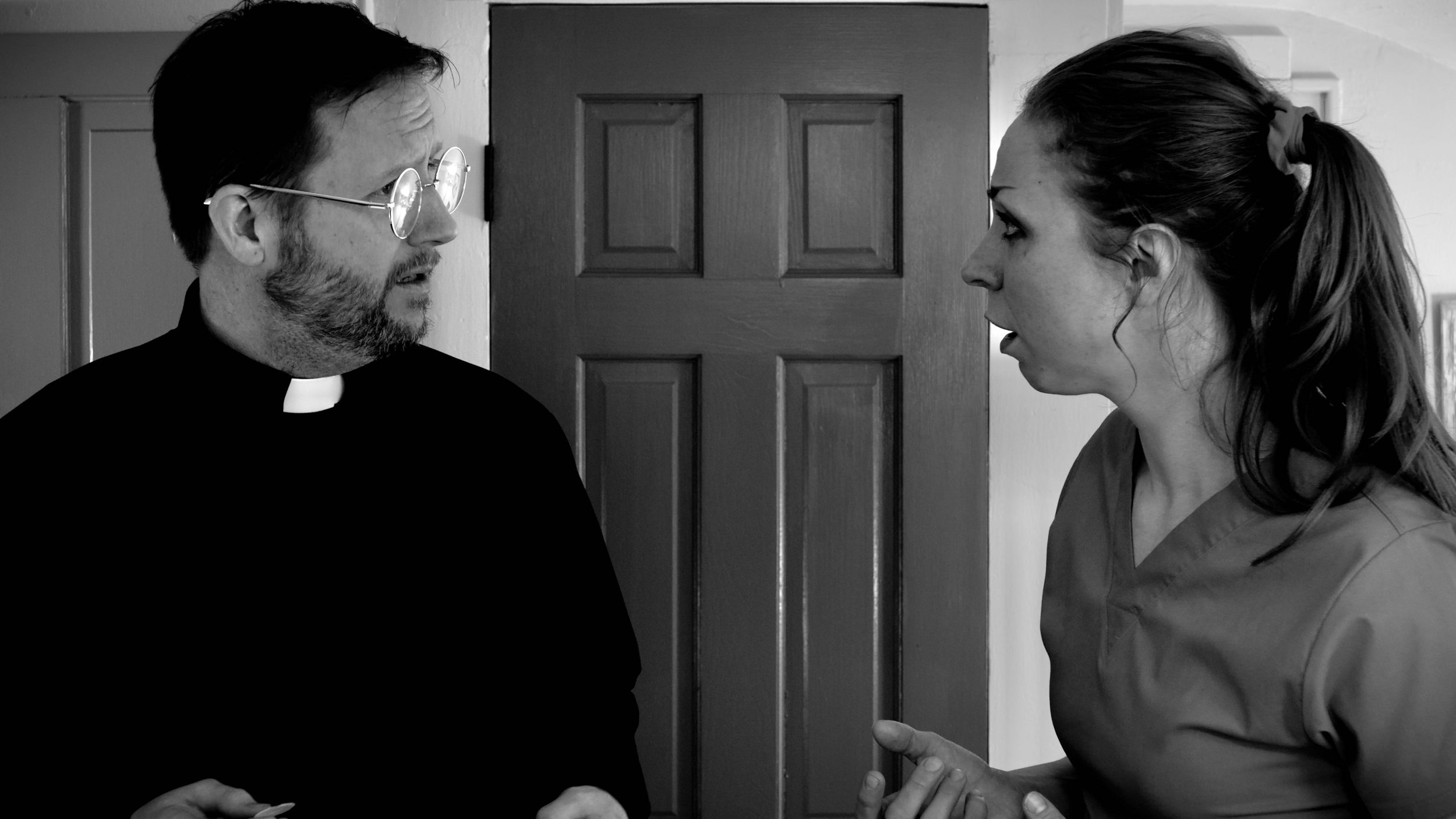Can I Be Honest? (2024)
A spoiler-free review by Kraken Film Reviews
-
Aziah Lusala
-
United Kingdom
-
59 minutes
-
Documentary
Aziah Lusala is a remarkable multidisciplinary artist and a proud student of the Royal College of Art in London.
Over the years, he has made a name for himself in the art and design festival scene, showcasing his work at prestigious exhibitions such as the London Design Festival, Rochester Art Fair, Fleet Art Fair, and the London Art Collective.
Now, he’s ready to take his journey to the next level with his debut documentary, "Can I Be Honest”.
"Can I Be Honest" is a documentary that is a blend of crime and art. It probes into Aziah's unusual journey, how he charts his course through life while keeping his identity hidden due to the stigma from his past.
Aziah was, in fact, incarcerated for two years, right when his career as an artist was reaching new heights.
How did he manage to get out of it? How was his art impacted by that? Did he keep producing art?
By watching this documentary, all these questions will find an answer.

This journey shows that even in the darkest moments, it’s possible to find the strength to rise above.
Can our mind create our reality?
This documentary is proof that yes, it can.
While in prison, Aziah didn’t let himself be defeated; instead, he used his time to learn and develop his artistic skills, but most of all, develop his business. That’s right, Aziah kept making money while behind bars, all thanks to his mental strength.
He also created art events outside, from behind the prison walls, continuing to nurture his passion and keeping his career alive, proving that creativity knows no bounds.
Imagine being in his shoes—establishing an art organization while behind bars and empowering fellow artists, all that without ever revealing who you are.
The film is like peeling back the layers of an onion, revealing the complex realities of his life.

The point of view, and personal vs. impersonal perspective
A little introduction:
The transition from an explicit narrator to an objective narrator took place during the 19th century, with the rise of literary realism, in contrast to the earlier “Romanticism”. In Romantic novels (first half of the 1800s), the explicit narrator was a dominant style, directly intervening in the story to judge, explain, or guide the reader, often with a subjective or moralizing tone.
This approach reflected the period’s sensibility, which focused on emotions, imagination, and personal values.
With realism (mid to late 1800s), the objective narrator arrived, remaining hidden behind the narrative and merely describing events impersonally, leaving characters, dialogues, and actions to show the meaning.
This shift mirrored a broader cultural transformation: realism was influenced by the rise of science, sought to represent reality faithfully, without the filter of subjective emotions or moral interpretations. Just facts, then, no explanation.
Literature evolved into Filmmaking:
This shift in narration can be compared to filmmaking, particularly in documentaries.
Just like in literature, documentaries can present events in either an explicit or an objective way.
In an explicit documentary, the filmmaker's perspective is clearly stated, often through voiceovers, interviews, or direct commentary that guides the audience's understanding and interpretation of the events.
The director's viewpoint, or the opinions of interviewees, become central, shaping how the story is perceived. On the other hand, an objective documentary takes a more cold approach, simply presenting facts, footage, and interviews without commentary, allowing viewers to draw their own conclusions.
A colder, more impartial approach can feel a bit off when paired with both the introduction of a child and the main theme of the film, which focuses on Aziah, an artist struggling with the limited opportunities he's had and the tough environment he grew up in—circumstances that held him back from easily developing his talents.
A documentary like this would benefit much more from a clear, guided perspective that pulls the audience in and helps them connect emotionally, narrating from a specific point of view. By actively leading the viewer, introducing the stories and characters in a more explicit and heartfelt way, the filmmaker can make the narrative feel more personal.

Being a debut documentary, and being this an autobiography, “Can I Be Honest” is a candid reflection of Aziah’s artistic and personal journey, which is always bound to constant evolution.
That’s why with his art, Aziah also explores what life means to him on both a personal and spiritual level. He even produces an art show titled “British Museum CSI: Investigation,” where he reflects on the stolen artefacts held in the British Museum.
“To my ancestors they were symbols of power and guidance; this performance calls attention to the enduring impact of cultural theft”.
Aziah isn’t alone in his journey; many artists have faced incarceration and turned their struggles into incredible successes. Take Tupac Shakur, for example. He was a hip-hop icon who spent time in prison, but rather than letting that experience define him negatively, he channeled it into his music. During his time behind bars, Tupac wrote powerful lyrics that reflected not only his personal battles but also the social injustices around him.
Claude Monet, one of the pioneers of Impressionism, was briefly detained during the Franco-Prussian War for refusing to serve in the military. This time in Monet's life left a mark on his artistic vision, inspiring him to create calm, almost dreamlike landscapes like Water Lilies— perhaps a counterbalance to the turmoil and chaos he had endured
In the modern era, Jean-Michel Basquiat battled societal pressures and personal struggles, including arrests tied to his street-art beginnings in New York. Basquiat’s raw, expressive paintings turned him into a cultural icon, shedding light on race, inequality, and identity.
"Can I Be Honest" sheds light on how determination and passion can lead to extraordinary triumphs, against all odds.
“The job of the artist is always to deepen the mystery.”
Discover more reviews:
“Viaticum”
A dark comedy that follows the story of Albert Lewis, a man nearing the end of his life, and his son Jason. Things take a wild turn when the local priest, Father Kettinger, arrives to administer the last rites.
“Chrysalis”
A romance sapphic story set in Istanbul, Turkey. A short production between New York (USA) and Turkey.





